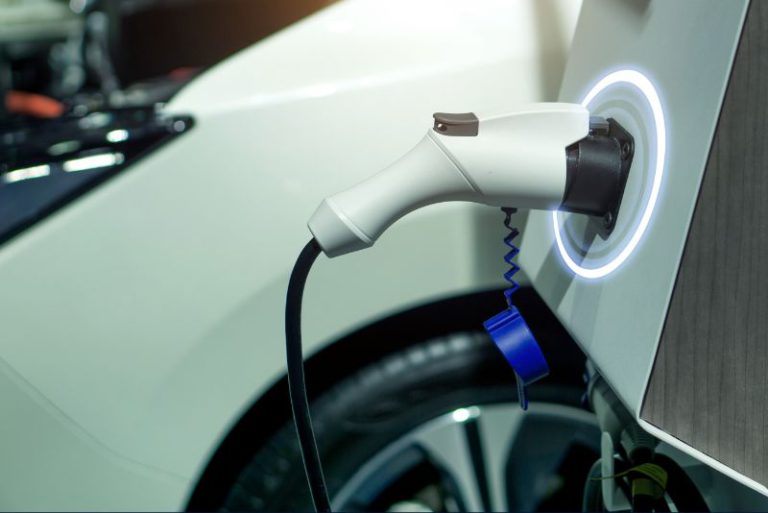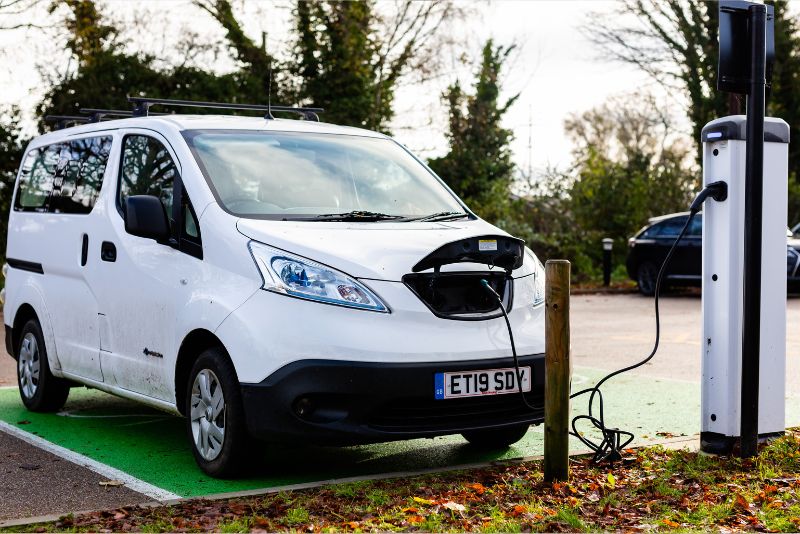With the 2030 ban on petrol and diesel vans looming large over the horizon, in addition to the hefty increase in fuel prices, you may be wondering if now is the right time to make the switch to electric.
It’s true that electric vans are more expensive to buy than their diesel counterparts but they offer significant long-term savings when it comes to fuel, tax, and maintenance costs. Electric vans are easier to drive and more refined than their diesel rivals too, which means they tend to be more comfortable over a long journey.
The latest crop of electric cargo carriers from Ford, Vauxhall and Peugeot will also deliver heavy-duty load carrying capacity that will easily match the latest diesel panel vans.
However, before you ditch your diesel, there are some important things you should be aware of. Dan Powell, editor at the online van marketplace AutoVillage reveals the top five things you need to know before joining the electric revolution.
Work out your mileage before shortlisting electric vans
How many miles do you drive a week? Does your daily commute involve long motorway trips or are you a local tradesperson who covers lots of short journeys?
Before you set foot in a van showroom, you’ll need to work out what your daily and weekly mileage is (then add 20% to cover those unexpected site visits and trips to the local wholesaler). Once you have an idea of your mileage, you can start shortlisting vans.
The Ford E-Transit will cover between 166 and 196 miles on a full charge, while the Vauxhall Vivaro-E is advertised with a maximum range of 205 miles.
It’s important to note the real world range may be slightly lower than the advised figure as things like air conditioning and heating will require power from the van’s EV battery.
Do the maths – charging an electric van vs. diesel
An electric van could save your business thousands every year. Charging the 75kWh version of the Vivaro-E will cost around 28p/kwh and give you around 200 miles of range. A diesel van that returns 47mpg will cost at least £37 to fill (at 191p-per-litre) and you could save even more if you charge your van at home on an overnight tariff.
Electric vans are more expensive to buy than their diesel rivals, however. The Vivaro-E, for example, is around £5,000 dearer than the standard diesel model. But road tax is free and electric vans also have fewer moving parts than diesel vehicles, which means maintenance and servicing costs tend to be lower.
Many supermarkets and public car parks will also let you charge your van for free while electric vans are exempt from clean air zone charges, like the London ULEZ.
Take charge – wallbox vs. public charging points
Obviously, if you buy an electric van then you’ll need somewhere to charge it. And a home charger is the cheapest and most convenient way for your business to operate an electric van.
Charging your van via a three-point plug will take all day, so invest in a home wallbox if you have a driveway as this will cut the charging time to six or seven hours (effectively overnight charging).
There are more than 33,000 public EV charging points in the UK. And more are being added to this figure every day. Some public charging stations are free to use. Rapid charging is the most expensive way to charge your van but is useful if you get caught short, boosting your battery from 10% to 80% in around 30 minutes.
Check your weight
Electric vans tend to have lower towing capacities than their diesel counterparts. The Vivaro-E, for example, will tow a braked trailer up to 1,000kg – so always check the spec if you need your electric vehicle to tow tools or equipment.
Payload capacity and load space is generally the same as diesel and petrol vans. In 2018, the Government changed licensing laws to make it easier for people to drive electric vans. This means you can operate an electric van weighing up to 4,250kg with a standard driving licence (instead of the 3,500kg you’d normally be limited to with a petrol or diesel vehicle).
Take a test drive
Have you ever driven an electric van before? If you haven’t, you’ll probably find the experience a little strange at first because electric vans are silent and don’t have a manual gearbox.
Electric vans also use regenerative braking, which recovers energy to top up the battery when you slow down.
This means the van will lose speed, when you lift your foot off of the accelerator, much quicker than a standard diesel vehicle.
As a result, we’d recommend taking an electric van for a lengthy test drive so you can see if it is something you feel comfortable with.
Insuring an electric van
As electric vans are still new to market, we spoke with Steve Moss, A-Plan’s Group Head of Commercial Vehicles, for some additional insights:
“The insurance market for electric vans remains far slower than that of diesel or petrol vehicles at the moment. Some insurers remain uncertain of the potential repair costs and availability of parts. This can lead to more inquiries before they are willing to commit to a quote and cover an electric van.
“But, we are seeing an increase in quote requests, particularly from the ULEZ and Clean Air Zone regions – and the quotes being provided generally appear to be relatively comparable to traditional vehicles – there are just fewer insurers quoting. We do need to see the availability of these vehicles increasing, and that will lead to an increased number of insurers willing to cover them.
For those with electric vans, it’s also imperative to check your cover in detail, as there needs to be more clarification around who covers the fixed charging point and cables. There is talk in the market surrounding extending electric van or car insurance to include the fixed charge point and cables, as opposed to it being covered by home insurance, which appears to be the solution for most at present.”
Are you considering an electric van and would like to find out more on how to go about insuring it? Our Commercial Vehicle team is only a phone call away and would be happy to answer any questions you may have about electric van insurance before you buy your vehicle.



